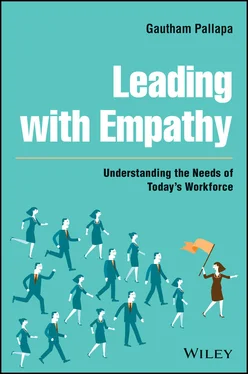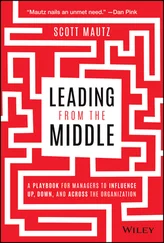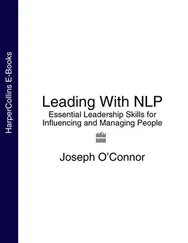It is difficult to see the silver lining from this devastating pandemic, in addition to all the adverse events since early 2020. However, being a naive optimist, I firmly believe that there are some positives to all our suffering:
There is a vaccine (in fact, there are several!). Scientists across the world rallied together with a singular purpose of finding a vaccine for COVID-19. Humanity could not afford the long cycles of rigorous testing, but at the same time, they needed a level of confidence that the vaccine would work en masse. People worked around the clock, put themselves at risk, and pushed the boundaries of medicine, technology, human endeavor, and grit.
Stronger relationships. The pandemic has given people a chance to spend more time with their families and build genuine relationships. Parents are becoming more involved with their children. Family bonding has strengthened, and children are communicating better with their parents. People have found more ways to reconnect with their loved ones as sources of mutual support, advice, and care. On a personal note, I spent over 900 extra hours with my family and am grateful for the social distancing protocols to have given me a chance to create some beautiful memories with my wife and son. I could not have done this if we were not on a lockdown.
Better hygiene. We finally learned how to wash our hands properly in 2020! Our smartwatches now have apps that train us to wash our hands appropriately and for the right amount of time. People are now more aware of how important it is to practice hygiene, and it's no longer just a good habit but a skill you need to survive. The pandemic made us cognizant of maintaining our hygiene by sanitizing our hands after touching anything, covering our mouth while coughing or sneezing, and washing hands regularly. We also learned to gauge how much six feet distance is and respect people's personal space.
Reduced air pollution. With the shutdown of economic and commercial activities, people were confined in their homes. Traffic volume rapidly plummeted by over 80 percent, making a significant drop in the air pollution rate. 50 NASA satellites have documented a substantial reduction of 20 to 30 percent in air pollution. 51 As all the social, industrial, and urbanization activities stopped, nature bounced back and improved various environmental parameters, including air quality, noise pollution, and cleaner rivers.
Increased kindness. Social distancing has affected people's relationships and their compassion toward others. As life slowed down and with nowhere really to go, people started acknowledging, conversing, and even, in some cases, caring for their neighbors and the community's health and well-being. People are cooking meals for the needy, offering emotional and even financial support to those in need, and performing supermarket runs for those unable to leave their homes.
Prioritizing life over work. Many people have started to slow down and enjoy the time with their loved ones and friends. They have created new memories and experiences within the confines of their homes, in many cases strengthening their relationships. Work-life balance has become a more important aspect of many people's lives. Even though many people were sequestered in their homes for long periods, they created innovative ways to enjoy themselves.
As an optimist, I see these signs and feel hope that things will work out eventually. However, as a pragmatist, I know that we cannot rest on these meager triumphs alone. We must endeavor to bring more hope, cheer, and positivity into the world. But how do we heal a world that has endured an exponential amount of pain and suffering in such a short time?
Proposing: Empathy as a Prescription for a World Overwhelmed by Adversity
Empathy is the powerful driver of breakthrough change toward achieving a much more just, caring, and compassionate world. Now, as individuals and teams, we can bring new energy and determination to making empathy a way of life that infuses all of our activities and relationships and sparks inspired positive change.
Says Jamil Zaki, in his groundbreaking 2019 book The War for Kindness: Building Empathy in a Fractured World: “Empathy is in short supply. Isolation and tribalism are rampant. We struggle to understand people who aren't like us, but find it easy to hate them.” 52 Studies show that we are less caring than we were even 30 years ago. In 2006, then-Senator Barack Obama said that the United States is suffering from an empathy deficit. “As you go on in life, this quality of empathy will become harder, not easier … we live in a culture that discourages empathy.”
According to Zaki, empathy is a skill that we can develop and sharpen over time. By working on this skill, we can improve our ability to be empathic and utilize it in our everyday life. This point of view resonates deeply with me. I believe that while some people might have a genetic disposition to higher levels of hormones that trigger empathy, 53 a more significant influence on developing empathy resides in our support networks, environments, experiences, cultural backgrounds, and interactions. My wife comes from a close-knit joint family with stronger bonds, while I come from a nuclear family. 54 I have been fortunate to have had an influential empathic role model in my mother growing up; however, my wife has much more empathy than me, perhaps because of her more robust support structure and family bonds.
Overwhelmed, angry, weary, confused, concerned, impatient—these feelings can paralyze organizations and people alike. But it doesn't have to be that way. Why not seize the moment and become the empathic leader that the world needs right now? Why not use this unique opportunity to focus everyone on strengthening our empathy muscles for the good of ourselves, our families, our communities, and our world, while we also proceed to pursue sorely needed systemic changes?
Each of us has a unique personality. That makes us different, but equally we all have lots in common and are connected in so many ways. We live in our own realities that are defined by our senses and our own experiences. But we are social beings and it is of utmost importance to our personal development to experience other people's realities. Our ability to communicate and understand our and other peoples' emotional states are keys to maintaining our relationships. When we observe someone experiencing joy or sadness, we are experiencing a similar sensation to a certain extent. Being empathetic means thinking further beyond ourselves and our own concerns. It shows our ability to put ourselves in another person's position to feel what they are experiencing.
Empathy is a very vital aspect of our daily lives. This is because it enables us to show compassion to other people, relate to our friends, loved ones, colleagues, and even strangers, hence affecting the world positively. As we embrace our role as empathic leaders, we also need to be cognizant of the difference between sympathy and empathy. Sympathy is driven by feelings of pity or concern for another person without really comprehending what it feels like to be in that person's situation. One can feel sympathy for homeless people, someone crying on the street, or painfully hobbling along with crutches on an icy footpath. However, empathy refers to the ability to imagine oneself in another's situation; experience the emotions, ideas, or opinions of that person; and take action to help reduce pain and suffering for the other person.
Empathic leaders are in short supply in the workforce as well. The stereotype of a workforce leader has been military in nature with no leeway for human emotions. This behavior suppresses any dredge of feeling in the workplace, and people are hesitant to demonstrate emotion lest they be judged weak and ineffective. It is imperative that we destroy this leadership stereotype if we want to enable our fellow humans. Genuinely understanding the need of team members, being sensitive to team needs, and selflessly striving to increase psychological safety in the organization are some benefits of an empathetic leadership style.
Читать дальше












